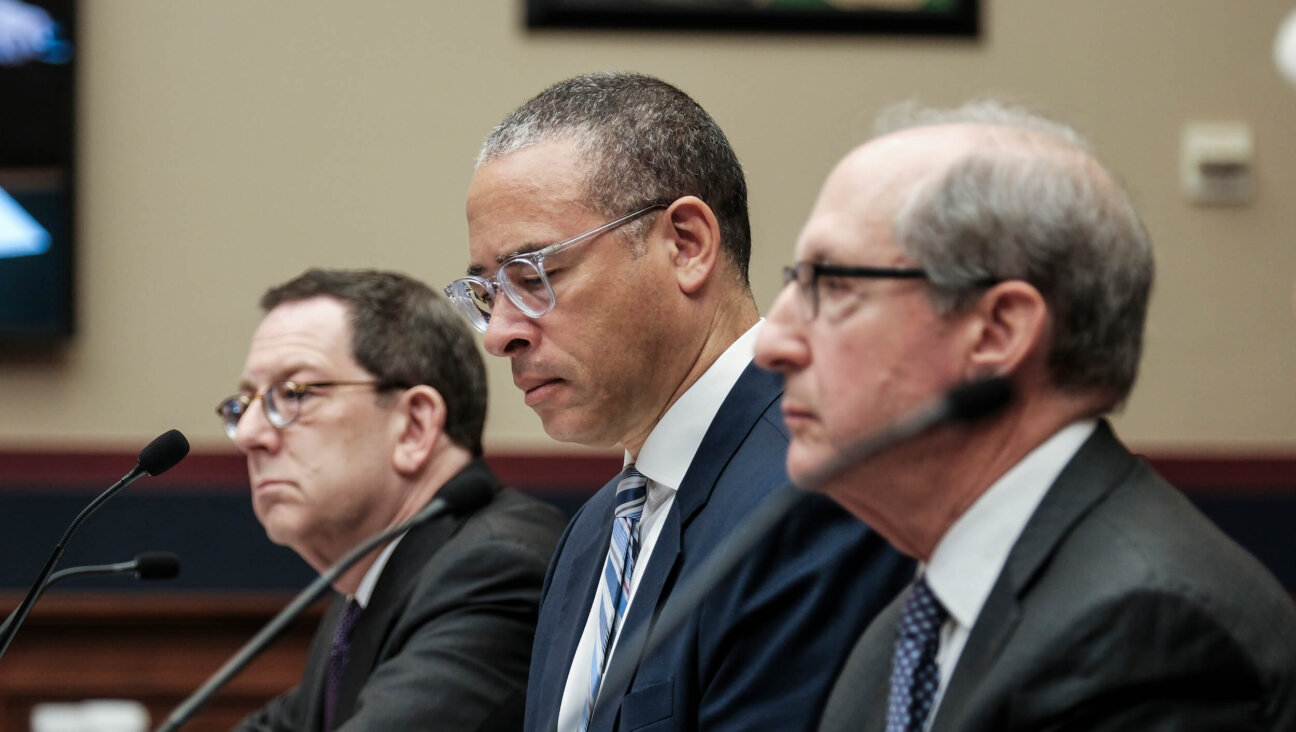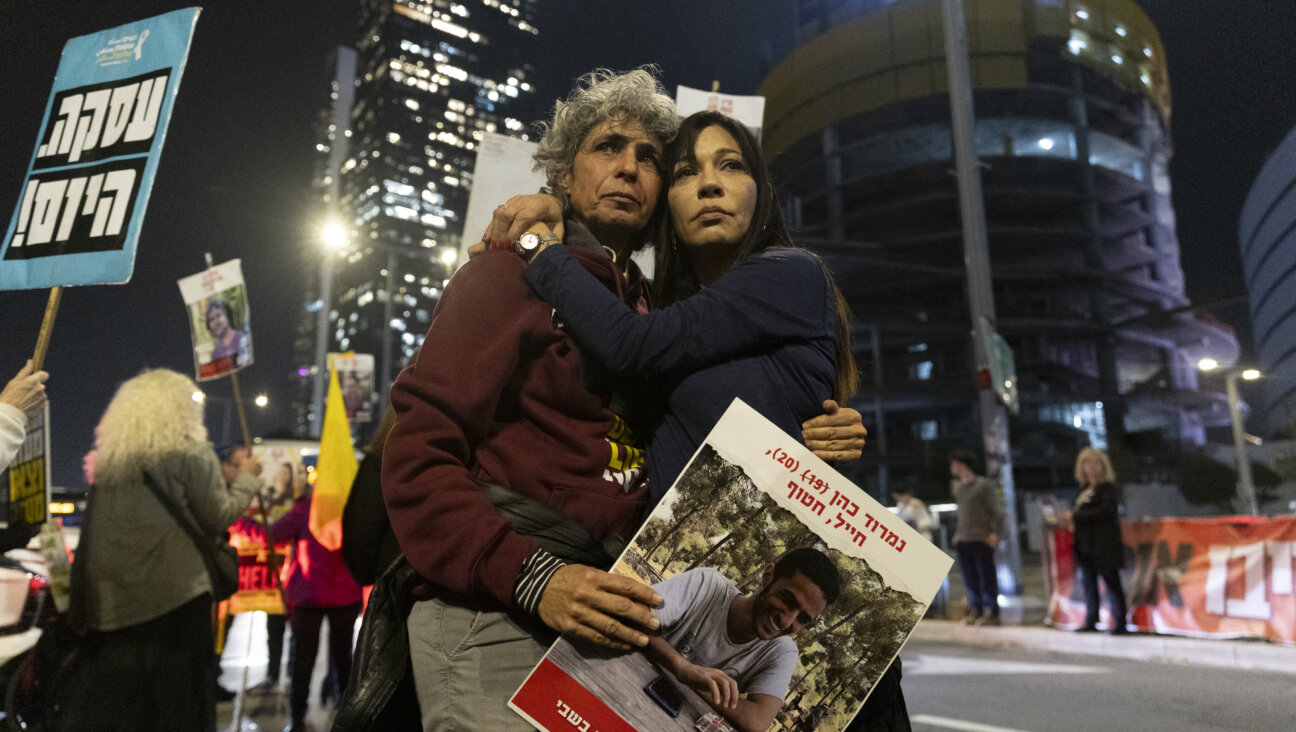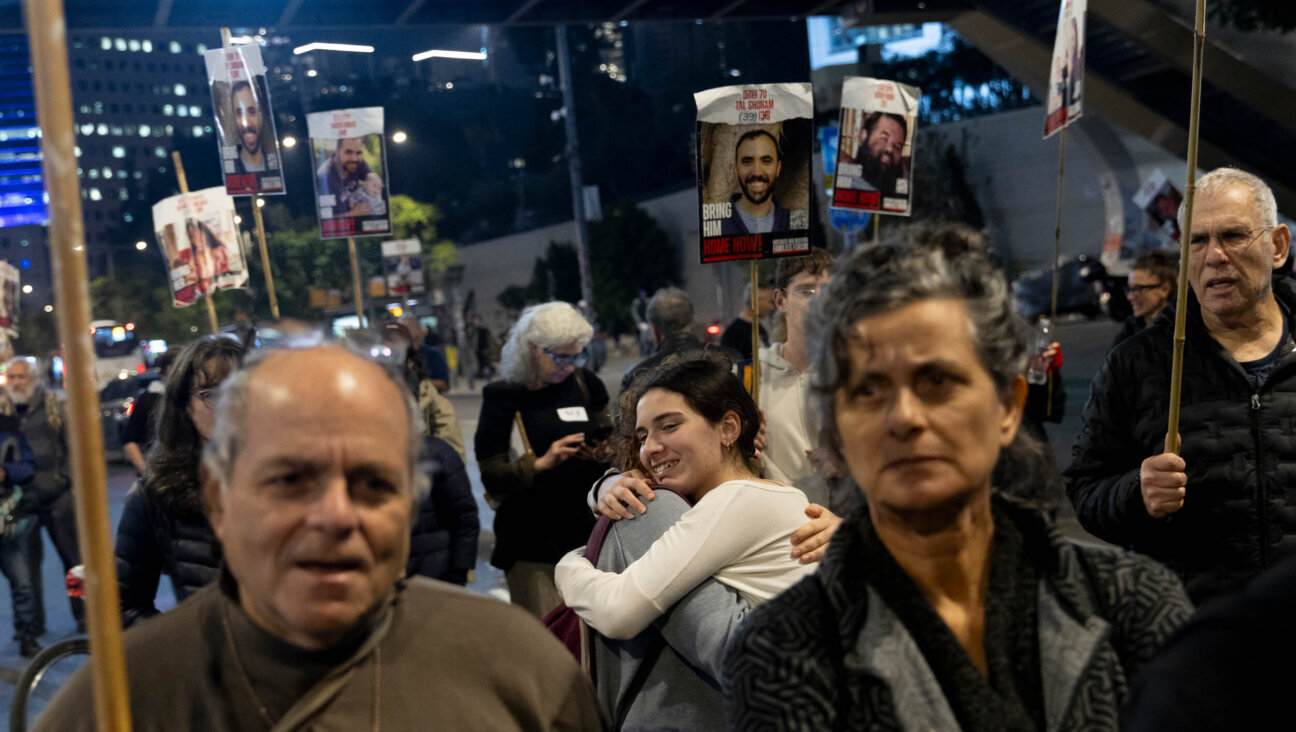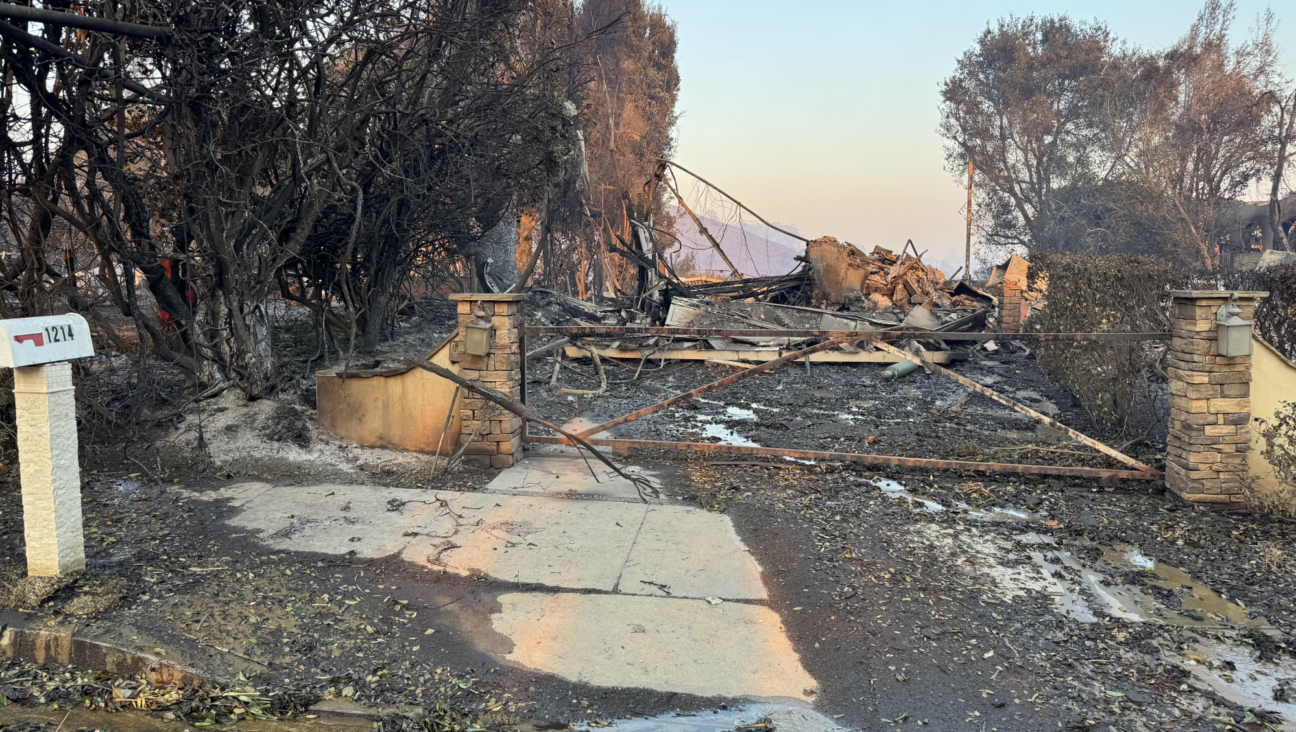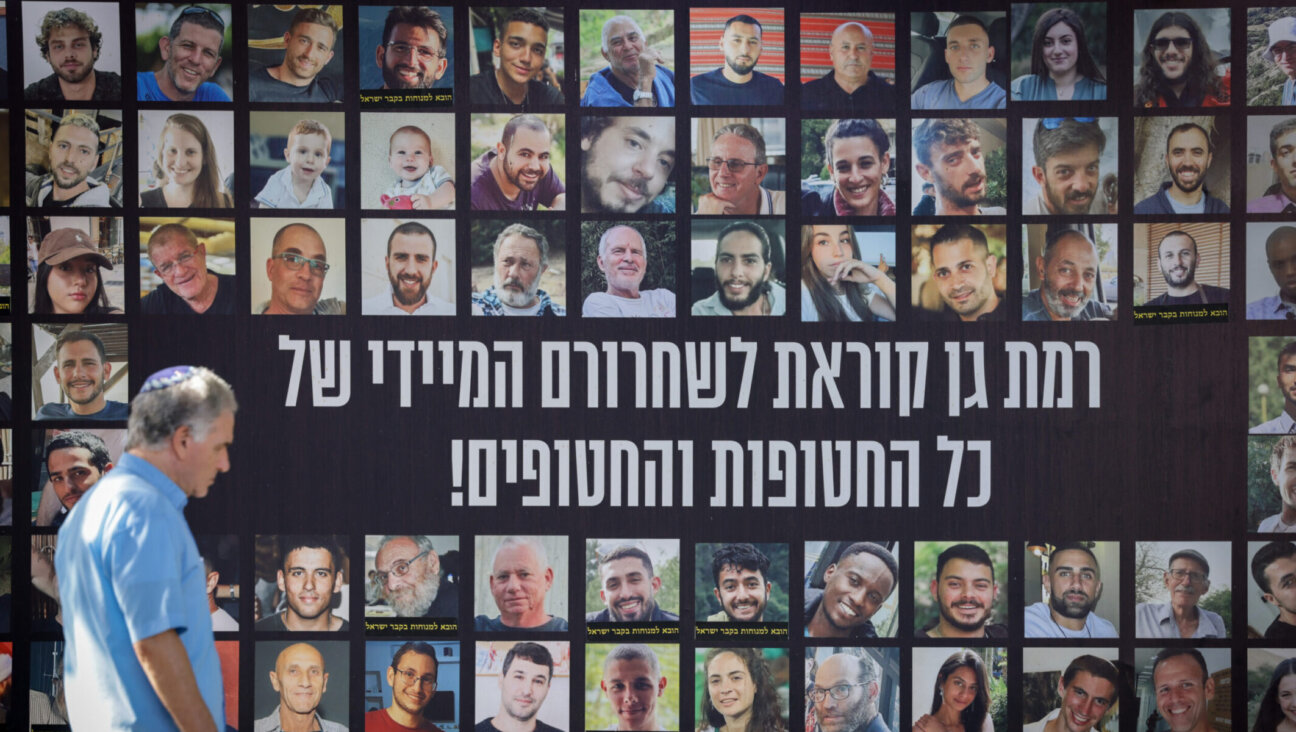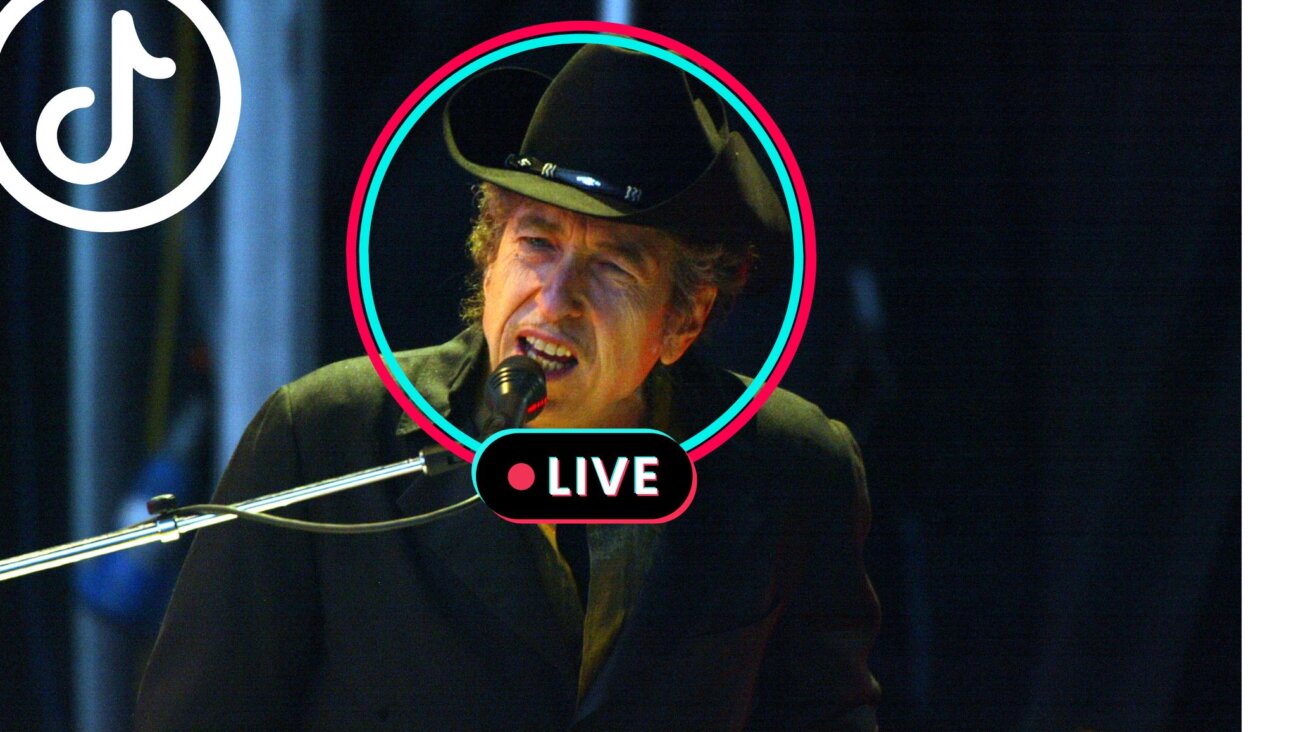Amnesty International’s genocide report is profoundly flawed — and everyone who cares about Israel should read it
Amnesty’s record on Israel warrants skepticism. But there’s still much we can learn from the group
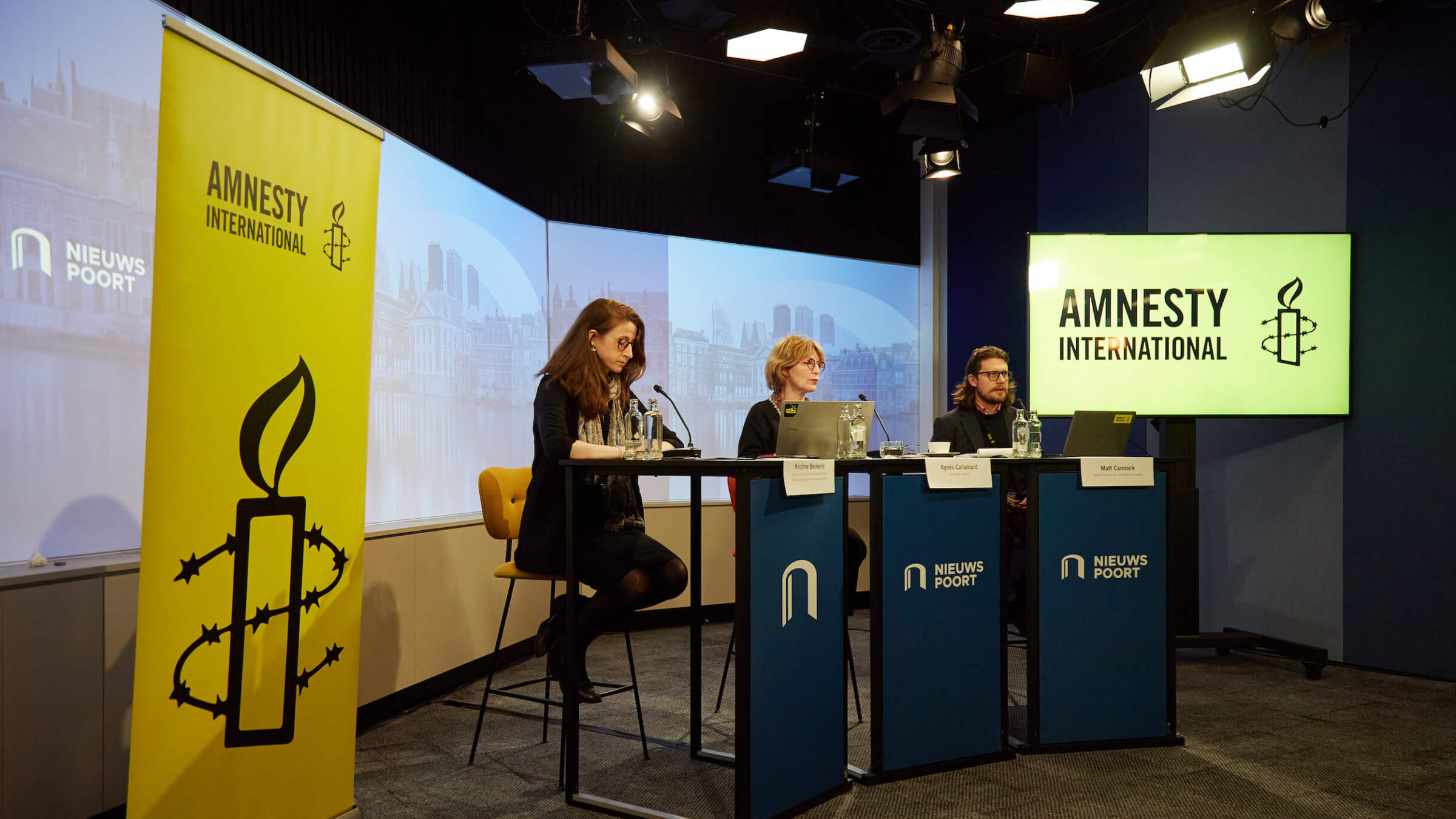
Amnesty International officers present the group’s new report alleging genocide by Israel in Gaza on Dec. 4. Photo by Pierre Crom/Getty Images
Amnesty International’s 296-page report accusing Israel of genocide comes after 14 months of gaslighting. Following Hamas’ Oct. 7 massacre, people and groups billing themselves as pro-Palestinian have repeatedly justified, mocked, and denied Jewish and Israeli pain. I have personally cut ties with former close friends who praised the murder of Jews and called out far-left groups for their Hamas apologism.
After a period like that, how could any of us trust international groups and institutions when they’re so often biased against Israel — remaining silent or issuing tepid statements amid horrors like Hamas’ sexual violence?
Yet we should not let those concerns distract us from what is right about Amnesty’s flawed report: The war in Gaza must end. Hostages are dying — and so are far too many innocent Palestinians. Amnesty’s editorializing aside, every Jew should read the stories of Palestinians in the report, much as we might ask others to bear witness to our suffering. These testimonials point to an inescapable truth: Whether the charge of “genocide” is warranted or not, Israel’s far-right politicians have co-opted a war of self-defense into one of gratuitous violence.
The Jewish community has reason to be skeptical of Amnesty International. In 2010, one of the group’s officials called Israel “a scum state.” Three years later, Amnesty’s now-Secretary General Agnès Callamard falsely implied that Israel assassinated former Palestinian leader Yasser Arafat — although the organization eventually distanced itself from that claim. In 2015, the only resolution to fail at Amnesty International’s annual meeting was one that would have directed the organization to fight antisemitism in the United Kingdom.
The U.S. State Department has already rejected the claims of genocide in Amnesty’s latest report; so too did the German government, and Amnesty’s Israel branch. In a joint statement, Jewish members of Amnesty from around the world alleged flaws in the report’s process. Criticisms from people who are otherwise aligned with Amnesty’s work constitute serious red flags.
And Amnesty’s anti-Israel bias can be seen throughout the report. For example, it generalizes references former Defense Minister Yoav Gallant made to “human animals,” and his supposed orders to “eliminate everything,” as referring to all Palestinians — even though The Atlantic’s Yair Rosenberg has unpacked how Gallant was clearly referring to Hamas.
To allege genocide, Amnesty also focuses on “the conditions of life imposed on Palestinians in Gaza” before the war. Aside from a brief note acknowledging Hamas’ pattern of violating Palestinian civil liberties in Gaza, Amnesty has little to say about how the terror group, which has governed the strip without elections since 2007, itself imposed many of those awful “conditions of life,” including by systematically diverting much-needed international aid. A section on the pre-October 7 landscape lambasts Israeli security measures, yet glosses over the legitimate foundation of Israeli concerns.
And yet even with these obvious failures, we shouldn’t dismiss everything in the report. Nor should we group Amnesty with some groups on the far-left that have taken to defending Hamas. On the one-year anniversary of Oct.7, Amnesty mourned the attack as“atrocious.” The report clearly calls out the “deliberate mass killings, summary killings and other abuses” committed that day, and frames many of these as war crimes. The group says it will focus on Hamas’ acts in a “forthcoming publication.”
But most importantly, claims of genocide aside, the Amnesty report aligns with what Israeli security experts who are committed to the country’s well-being have already pointed out: The war no longer has a strategic purpose.
Again and again, Israeli Prime Minister Benjamin Netanyahu has foiled attempts to reach a hostage deal. Israel defense officials have tried, to no avail, to push for one: Under Netanyahu, the government simply has no interest in ending the war. Recent operations in northern Gaza were ordered without serious consultation or intelligence to justify them. Security officials now warn that the government may be moving toward annexation, and that the war is endangering the lives of the hostages.
Former Defense Minister Moshe Yaalon, a one-time member of the Likud Party and far from a left-wing peace activist, recently suggested that Israel was committing war crimes and ethnic cleansing in Gaza. Yaalon said he was “speaking in the name of IDF commanders who are operating in the northern strip” who “reached out to me expressing fear about what’s happening there.”
No one can credibly accuse him, as the military’s chief of staff during the Second Intifada and defense minister during Operation Protective Edge in 2014, of not caring about Israel.
The Amnesty report reminds us who we should actually be listening to to understand this conflict. Not self-serving Israeli politicians, but rather Israeli security experts and Palestinian civilians who have suffered from the pointless extension of this war. Here are two incidents included in the Amnesty report that every person, on any side of this war, should consider:
- Mohammed, a 42-year-old with three children in Deir al-Balah, said “you have to protect your children from insects, from the heat, and there is no clean water, no toilets, all while the bombing never stops.”
- Ahmad Nasman’s parents, sister, wife, and three children were killed in an Israeli airstrike. “My body survived but my spirit died with my children,” he said. Ahmad spent four days searching through the rubble before he found the body of his three-month-old child Ayla. His five-year-old, Arwa, was completely decapitated.
If you’re skeptical of Amnesty, then you can turn to a separate document compiled by Israeli historian Lee Mordechai that chronicles similar stories, such as that of an Israeli tank running over 62-year-old Jamal Hamdi Hassan Ashour after his hands were zip-tied. Many other credible sources that capture similarly horrifying stories — like that of 19-year-old software engineering student Shaban al-Dalu, who was burned alive at Al-Aqsa Martyrs Hospital after an Israeli airstrike started a fire. His family had already been displaced 15 times.
Reflexive pro-Israel claims of “But Hamas!” are their own form of gaslighting. They do not take into account the needless extent of this civilian suffering. Agree or disagree with Amnesty’s conclusions; the details included in its report as well as other sources should make all of us take a step back.
In the summer of 2019, I traveled to the West Bank to speak with Palestinian officials and residents. There, I heard conspiracies about Israel funneling rockets to Hamas, and hopes that the country my family lives in would disappear. I also heard painful testimony about people’s struggles to obtain work permits, and their relatives who were killed by Israeli forces.
That experience and the Amnesty report share a similar lesson: We cannot let misrepresentations or lies about Israel make us turn away from overwhelming evidence of Palestinian suffering.
Right now, Israel continues to recover the bodies of hostages; many of the more than 100 hostages still in Gaza are now presumed dead. Edan Alexander, from my hometown of Tenafly, New Jersey, is still in captivity, separated from his loved ones. Just as Edan deserves to come home, no Palestinian, no person, should ever endure what Mohammed, or Ahmad Nasman, or Jamal Hamdi Hassan Ashour, or Shaban al-Dalu did.
No matter what they think of the recent report, there is one point on which Amnesty, Israeli generals, the families of the hostages, and the Israeli public all agree: It’s time to end this war.
A message from our Publisher & CEO Rachel Fishman Feddersen

I hope you appreciated this article. Before you go, I’d like to ask you to please support the Forward’s award-winning, nonprofit journalism so that we can be prepared for whatever news 2025 brings.
At a time when other newsrooms are closing or cutting back, the Forward has removed its paywall and invested additional resources to report on the ground from Israel and around the U.S. on the impact of the war, rising antisemitism and polarized discourse.
Readers like you make it all possible. Support our work by becoming a Forward Member and connect with our journalism and your community.
— Rachel Fishman Feddersen, Publisher and CEO







